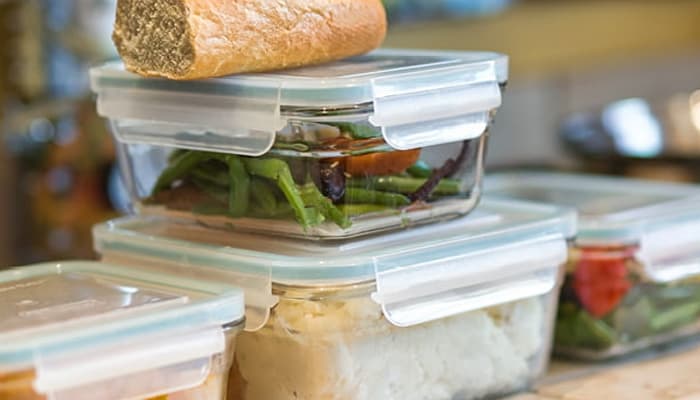
Living a healthy lifestyle doesn’t have to drain your wallet. In fact, small, intentional swaps in your daily routine can make a big difference for both your well-being and your bank account. The key is finding practical, affordable changes that fit seamlessly into your life—without feeling like a sacrifice.
If you’ve ever wanted to eat better, move more, or reduce stress but thought it would cost too much, you’re in the right place. Here are 12 budget-friendly lifestyle swaps that can help you feel healthier, more energized, and happier every day.
1. Swap Sugary Drinks for Infused Water

Sodas, energy drinks, and specialty coffees add up fast—not just in calories, but in dollars. Instead, try infusing water with fruits, herbs, or even a splash of citrus juice. You’ll save money and stay hydrated while enjoying refreshing flavors.
Pro tip: Keep a reusable water bottle handy to encourage sipping throughout the day, especially at work or while running errands.
2. Cook at Home Instead of Dining Out
Ordering takeout may be convenient, but it’s expensive and often packed with hidden sugar, sodium, and unhealthy fats. Planning simple meals at home can save hundreds of dollars per month and give you full control over ingredients. Try batch cooking on weekends—preparing meals that can be frozen or easily reheated throughout the week. This not only saves money but also reduces stress during busy weekdays.
3. Replace Gym Memberships with Outdoor Workouts

Instead of paying for a pricey gym, explore free or low-cost alternatives. Go for brisk walks, jogs, or bodyweight workouts in a local park. You’ll get fresh air, sunlight, and movement—all for free.
Bonus: Exercising outdoors has been shown to boost mood and improve vitamin D levels, giving your mental and physical health a double lift.
4. Switch to Plant-Based Proteins a Few Times a Week
Meat can be expensive, especially quality cuts. Introducing beans, lentils, chickpeas, or tofu into your meals not only cuts costs but also adds fiber and essential nutrients to your diet. Even two or three plant-based meals weekly can make a noticeable difference, both on your wallet and in your overall health. Explore creative recipes like lentil tacos, chickpea curries, or tofu stir-fries.
5. Use Secondhand or DIY Fitness Equipment

You don’t need a home gym full of machines. Thrift stores, online marketplaces, or DIY options can help you score yoga mats, dumbbells, or resistance bands at a fraction of the cost. You might even repurpose household items—like using a sturdy chair for tricep dips or a backpack filled with books for weighted squats.
6. Opt for Generic or Store-Brand Products
From pantry staples to vitamins, store brands often offer the same quality as name brands at lower prices. Compare ingredients and choose wisely—your wallet and your health will thank you. This applies not only to food but also to personal care products like shampoo, conditioner, or body lotion.
7. Plan Your Meals to Reduce Waste

Food waste is both costly and environmentally harmful. Planning your weekly meals, using leftovers creatively, and freezing excess portions can save money and reduce stress around mealtime. Tip: Keep a”leftovers night” each week where any remaining ingredients are turned into soups, stir-fries, or casseroles.
8. Swap Screen Time for Mindful Activities

Instead of endless scrolling or binge-watching, try reading, journaling, or meditating. These low-cost habits improve mental health, reduce stress, and boost creativity—without spending a dime. Even five minutes of deep breathing before bed can help improve sleep quality and lower cortisol levels.
9. Brew Coffee or Tea at Home
Specialty coffee shops can become a huge monthly expense. Brewing your favorite drinks at home is far more economical and lets you control sugar, milk, and flavorings for a healthier option. Try experimenting with flavored teas, homemade latte recipes, or cold-brew coffee to keep mornings exciting without overspending.
10. Walk or Bike Instead of Driving Short Distances

Transportation costs add up quickly, from gas to parking fees. Walking or biking not only saves money, but also boosts fitness, improves mood, and reduces your carbon footprint. Make it fun: take scenic routes, listen to a favorite podcast, or challenge yourself to walk a certain number of steps each day.
11. Use Natural Cleaning Products
Instead of expensive chemical cleaners, try simple, natural alternatives like vinegar, baking soda, and lemon. They’re effective, affordable, and safer for both your health and the environment. Bonus: Mixing essential oils with vinegar not only cleans but also leaves a refreshing scent in your home.
12. Prioritize Sleep Without Gadgets

Good sleep is essential for energy, focus, and overall well-being. You don’t need costly sleep aids—creating a calming nighttime routine, limiting screens, and keeping your bedroom cool and dark are free and highly effective strategies. Consider adding a few minutes of gentle stretching or meditation before bed to signal to your body that it’s time to unwind.
